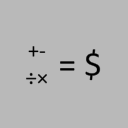Googol: bigger than the universe, but not bigger than possibilities
In our previous exploration of googol, we discovered that even when considering the entire universe and sub-atomic particles, we fall short of this gigantic quantity. Yet, there are areas where numbers even larger than a googol become essential: they don’t directly involve physical things, but concepts, constructs, and possibilities.
10,000,000,000,000,000,000,000,000,000,000,000,000,000,000,000,000,000,000,000,000,000,000,000,000,000,000,000,000,000,000,000,000,000
While things might not get to googol, possibilities do
If you want to know the potential number of ways things can be arranged, then you can start getting close to a googol or even beyond. Imagine arranging books on a shelf or assigning houses to relocating families. These scenarios involve a concept called factorials. A factorial (like 10!, meaning 10 x 9 x 8 x… x 1) multiplies a number by all the decreasing whole numbers down to 1. Factorials grow incredibly quickly, and the number of possible arrangements soon skyrockets! If you have 110 families, or 110 books to organize, the total number of possibilities is well over googol.
Are these theoretical problems practically important?
Many everyday situations don’t require knowledge of these huge combinations since we often organize things non-randomly (alphabetical bookshelves, housing preferences or requirements by buyers, etc.). And if you were randomly organizing your bookshelf, it wouldn’t really matter what the possible combinations are since you don’t care about order.
However, consider a logistics company needing to optimize millions of deliveries every day. The possible route combinations become an immense math problem! Other areas dealing with mind-boggling possibilities include: microchip design, large protein folding, optimally packing objects in containers, cryptography, and many problems is statistical mechanics that involve entropy.
While the number of things could never reach googol, the number of possibilities easily can.
